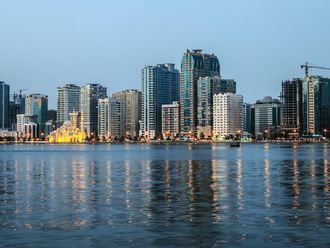
Dubai: Some companies saw the signs and symptoms of COVID-19, some did not and still others were in denial, but the UAE authorities anticipated the economic storm brewing and were quick to step in to regulate the relationship between employers and employees to protect their interests.
According to a new survey, 50 per cent of local firms had contingency plans in place once the virus outbreak was declared a pandemic and strict limits were placed on people movements and business and commercial activity.
The study also suggests that a vast number were unprepared to carry on much by way of activity.
Those who had done the preparatory part had “some sort of contingency plan or an emergency team to respond,” says a new report from Tuscan Consulting, which based its findings on a poll of 401 companies done between late April and early May.
“These organizations have responded little better than the others who were not prepared – 66 per cent negative economic impact compared to 71 per cent overall. These organizations will be able to come back relatively quicker and better prepared when workplaces fully reopen.
“Organizations with planning are able to better respond to the business impacts of this pandemic. Forward thinking organizations that had contingency plans, emergency response teams, remote working and technology setup are always prepared to deal with some sort of workplace disruptions.”
A changed landscape
The job market in the UAE has been affected. There have been layoffs across sectors. However, this is not limited to the UAE. Countries the world-over have been battered by the economic storm that the coronavirus has unleashed.
Stoppages in commercial activity have meant entire sectors have found themselves with limited scope to generate cash flow, and this is having a telling impact on workforce numbers.
The Tuscan survey found 37 per cent of UAE organizations asked employees to take unpaid leave, and 35 per cent had reduced working hours for employees. Moreover, 29 per cent of businesses polled offered paid leave and 24 per cent terminated some of their workforce. Another 20 per cent reduced staff salaries.
The UAE authorities saw this storm brewing at a distance and recognised early that it would strike the country’s shores too. It acted quickly to protect the interests of employers and employees.
The Ministerial Decision No. 279/2020 guides “employers and employees on fairly and legally dealing with the current crisis,” the report notes.
“Employers are advised to take lighter measures before taking any drastic actions. Employers can at the first step ask employees to work remotely or consume all paid annual leave.
“Implementation of unpaid leave and amendment of employment contract for a temporary or permanent reduction in salary requires employee consent, with a permanent amendment being necessarily registered with MOHRE (Ministry of Human Resources and Emiratisation.)”
Would it mean an employee can transfer to the visa of another company without a hitch?
“Yes - if companies have to terminate employees because of the COVID-19 then they are required to register such employees on the MOHRE virtual job market,” said Hasan Babat, Managing Consultant at Tuscan.
“Any companies looking to hire foreign workers during this period of international travel restrictions can recruit employees locally from the virtual job market. However, these provisions are applicable only till the precautionary measures are in place.
“And these provisions are applicable to companies registered under MOHRE and not all the other free zones. The free zones implement their own policies.” Free zones had in March confirmed that an employee on a free zone license could switch to another company that requires his skills if the employer has no issues.
Deploy the new Law
The coming weeks will see companies taking recourse to the provisions of the Law. According to survey, from June, 57 per cent of organizations are planning to revise compensation and benefits.
“HR teams are likely to be involved in more difficult conversations in the coming months,” the report states. “It is advisable for all HR practitioners to have dialogue, show empathy and take employee consent and ensure legal compliance for any drastic measures on salary and benefits.
“Our survey finds 42 per cent of organizations have stopped increments/bonuses for this year, 32 per cent were not yet sure on whether there will be any increments or bonuses, while 13 per cent did not have an annual increment or bonus policy.”
But the UAE Law provides the safety net for employees to make sure their interests are taken care of. In the upcoming months of rebuilding, a fair deal will be of benefit to all.
The UAE has flourished through the years because of its policies and a vibrant labour force. Millions from the world over flock to the UAE in search of a livelihood. Once the world re-opens as the virus becomes less ferocious and the economic storm ebbs, the UAE will continue its march forward aided by its workforce that is protected by the law.
1. Implementing a remote work system;
2. Granting employees paid leave;
3. Granting employees unpaid leave;
4. Reducing salaries temporarily which requires employees written consent; and
5. Reducing salaries permanently by amending the employment contract with MOHRE.



